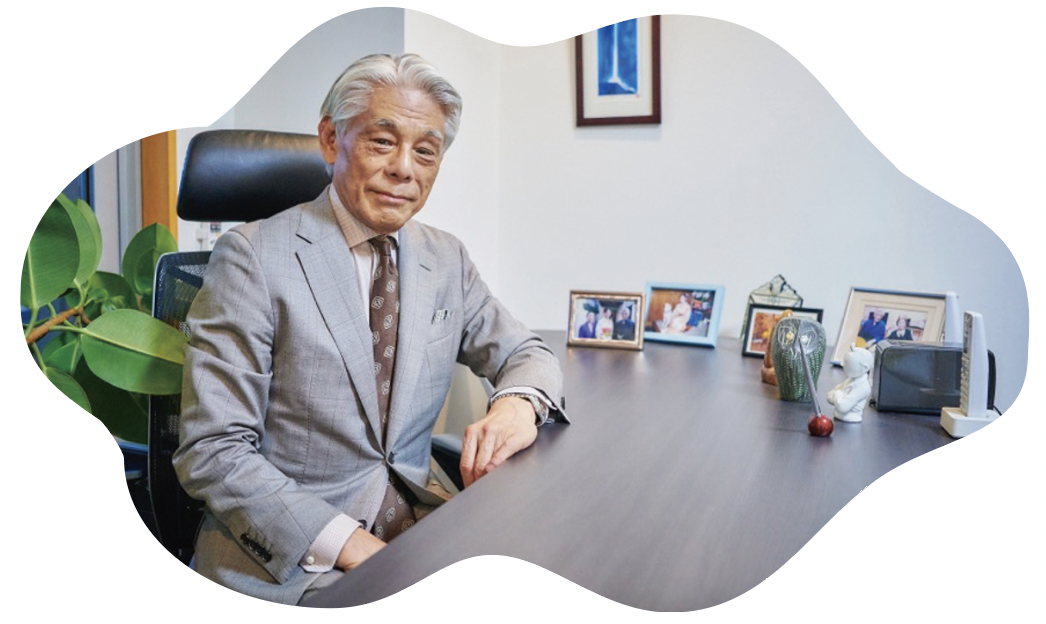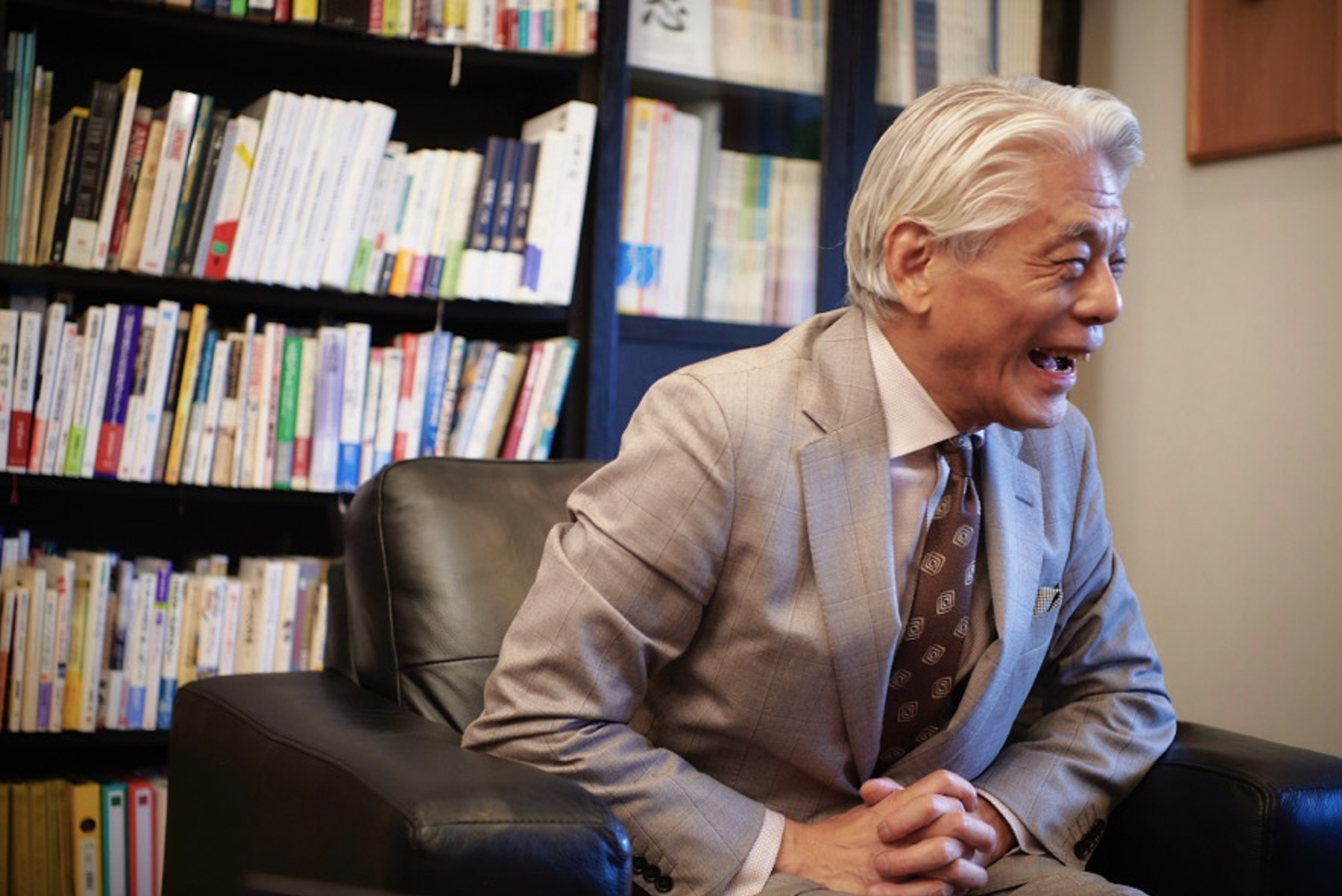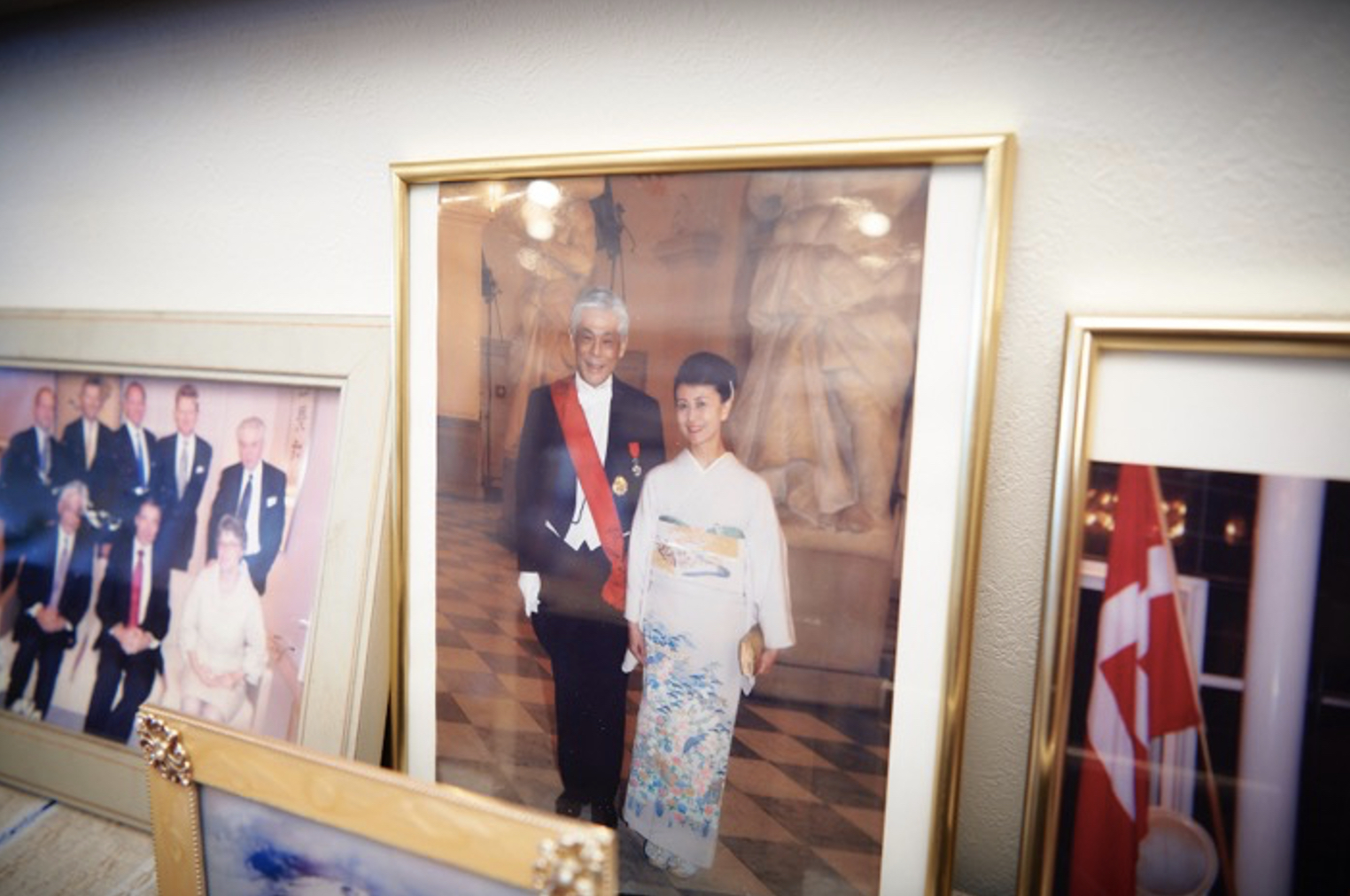

Photos by Tsunaki Kuwashima (KAIBUTSU)
ー
Mr. Kondo, you have served as Japan’s Commissioner for Cultural Affairs. When did you first become interested in culture?
Dr. Kondo
I was leading an ordinary life like most other children, but one day, around the second grade of elementary school, while walking home, I heard a piano melody coming from a large Western-style house. I think it was Fantasie-Impromptu by Chopin, played by a child perhaps a little older than me. I felt a strong longing inside me to play that music myself.
Due to this inspiration, I started to absorb myself in Western culture (laughs). Later, when I started traveling abroad, however, I found it increasingly necessary to explain my own culture to others. So, I began to focus more attention on Japanese culture.


In your work as a diplomat, did you get many opportunities to speak about culture?



Dr. Kondo
Yes. As a diplomat, understanding the cultures of other people is very important. Broadly speaking, there are two kinds of diplomacy: bilateral diplomacy, between two countries, and multilateral diplomacy, between member countries of international organizations such as the OECD (Organization for Economic Cooperation and Development). Those kinds of conferences are typically managed by Western countries. Many of the people from other regions, like India, are also skillful English speakers who are well versed in Western rationalist ideas.
ー
Language and words are very important for a diplomat then.
Dr. Kondo
Inflating what you want to say by 20% to assert your viewpoint to others is a little incompatible with Japanese culture, so I don’t tend to speak out very much (laughs).
However, success or failure in bilateral diplomacy depends on whether or not mutual trust can be nurtured between the two parties. For this purpose, it is important to understand the cultural background of the other party. For example, by knowing something about their family, musical preferences, and personal interests, you can look for some common ground. Respect grows out of the personal thoughts, sensibilities, and other characteristics of the person you are dealing with. From there, a genuine exchange between human beings can begin.


Dr. Kondo
Multilateral negotiations are more difficult. In the space of an open conference venue, everyone is outwardly representing the interests of their nations, and the media is also present in some cases. So, diplomats compete with each other, under pressure to present the image of an uncompromising negotiator. Meanwhile, behind the scenes, there is a lot of consensus-building and coordination going on. In these situations, people who have things in common and mutual respect are able to share their personal feelings and find some middle ground for agreement.
It sounds like these are very human kinds of interaction between people.



Dr. Kondo
I think that what people yearn for in these kinds of settings is culture.
ー
What are the unique features of Japanese culture from a foreign perspective?
Dr. Kondo
One of the most deep-rooted ideas in Japanese culture is that people are a part of nature, and that nature is in a constant state of flux. There is no such thing as a fixed person or self. The present moment is just one moment in the flow of time.


Dr. Kondo
This is expressed in a famous poem by Kamo no Chomei: “The flow of a river never stands still, and the water that flows in it is everchanging. Bubbles on the water’s surface arise and pass away, never persisting in the same state. The same is true of people and dwellings.” (* These are the opening lines of An Account of My Hut (Hojoki).)
ー
These words, written more than 800 years ago, very clearly express the Japanese view of nature.
Dr. Kondo
That’s right! There is a big assumption in the Western rationalist worldview, that things have an unchanging substance or essence that persists forever in the same form. This is not the case in Japanese culture, which sees that everything in the world is in a state of constant change. What is important, therefore, is not what an entity is, but rather how it is changing. There is an idea that to perceive the essence of something, we need to determine the flow of its change.


Dr. Kondo
A day, in the sense of a 24-hour span, consists of day and night, or daylight and nighttime, doesn’t it? According to Western rationalism, there is a dualism: daylight is daylight and nighttime is nighttime. In Japanese culture, however, there are more nuances. There is a constant change occurring. In the evening there is a gradual fading of light; in the morning a gradual dawning of light. And we have full moons, hazy moons, crescent moons, and more. In the midst of this constant change, an essential quality remains. The Japanese view is that since we too are a part of nature, we revolve in interconnection with life.
Enzymes are also part of the mechanisms that connect life and keep everything in a state of flux…



Dr. Kondo
The existence of human beings is momentary, and the lives of individuals are brief. Eventually, they perish, defeated by the power of entropy. However, through reproduction and transformation, like viruses, living in mutually supportive relationships with nature, including enzymes, and exchanging vital force and energy with other forms, the cycle of life on this planet has been spinning for 3.8 billion years. This isn’t stated explicitly thus far, but I think this attitude to life is felt intuitively in Japanese culture.
Consequently, when we take the life of a bear or a whale, we tend to make use of every last part of it to the fullest. We build mounds to mourn the death of microorganisms. And when a ship is wrecked, we build a shrine to honor it. We have cultivated a culture of expressing gratitude for what we have been given. And although it may be a dying practice, we hold memorial services for dull and broken sewing needles at the end of their useful life (hari-kuyo), sticking them into a block of soft tofu, expressing our thanks by saying “well done, you’ve worked hard” (gokurosan).
ー
What do you think about what you’ve heard so far, Enzo?
Researchers at Amano Enzyme have told me that they became interested in a research career after an electron microscope or other technology allowed them to see things that were previously invisible. That’s why I feel that it is so difficult to explain things to people who cannot yet see them. Similarly, I imagine it must be very difficult to explain Japanese culture to people overseas.



Dr. Kondo
Yes, it is difficult to explain using words alone. That’s why the best thing is to get people to come over to Japan, to experience our four seasons, and see and experience the way Japanese people live. I believe that communicating Japanese culture and views about nature, and Japanese ideas and ways of thinking will become increasingly important in the coming years. This discussion is also relevant to the issue of environmental destruction. And it has the potential to help us address the declining diversity of wildlife species.


On the subject of enzymes, it is reported that humans still know only a tiny fraction of all the microorganisms living in the world. If science and technology continue to advance, we will probably be able to find new, undiscovered species. On the other hand, even as we wait for that to happen, the number of species of microorganisms is probably decreasing.



ー
Finally, what are your expectations for research on enzymes, which, like cultures, are invisible things that make our world what it is?
Dr. Kondo
I believe that with the further evolution of science and technology, our objective knowledge about enzymes will grow. The important point is to realize that the world is made up of all kinds of things that we cannot see and that these things are in constant flux.
The things that humans can see with their eyes, hear with their ears, taste with their tongue, and touch with their hands make up only a very small part of the things in the world. Humans have felt that they have understood everything about themselves and nature, but the more we learn, the clearer it becomes that this is not the case at all.


Dr. Kondo
I truly hope that humans will get over the arrogance that they have developed as a result of the so-called progress of civilization. They should instead cultivate feelings of humility and respect for nature. It would be nice if more and more people appreciated the importance of respecting the laws of nature.
In this sense, the role of enzyme research will be increasingly essential. I feel confident that the people who conduct such research will be able to apply the fruits of their work in various ways for the benefit of people and humanity.


From Mr. Kondo’s talk, we learned that the humble realization that humans are a part of nature is strongly rooted in Japanese culture, and that this attitude is vital for the future success of science.
Through our research and development into enzymes, we harness the power of invisible microorganisms. In the course of our work, on a daily basis, we realize that the phenomena that we believe we can control make up, in reality, only a small part of the natural order of things.
In the enzyme industry and other spheres, combining Western scientific thinking with a Japanese view of nature has the potential to enable better research and development. As we continue to pursue the infinite possibilities of enzymes at Amano Enzyme, we will remember to remain respectful of what we cannot see or perceive, and to strive for harmony with nature.
Enzymes are active in every aspect of our world, and we are seeking new possibilities for them.
In this corner, we visit people who are currently active in various fields with "Enzo" and ask them about their stories.

